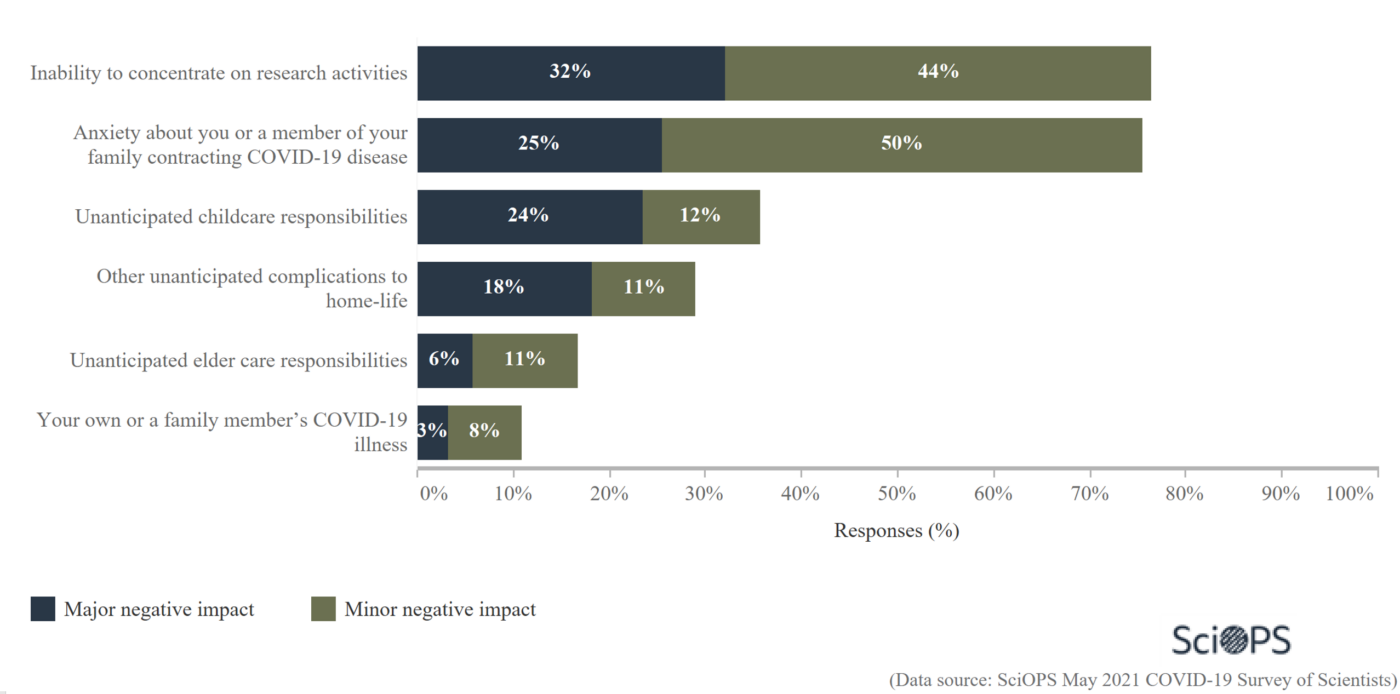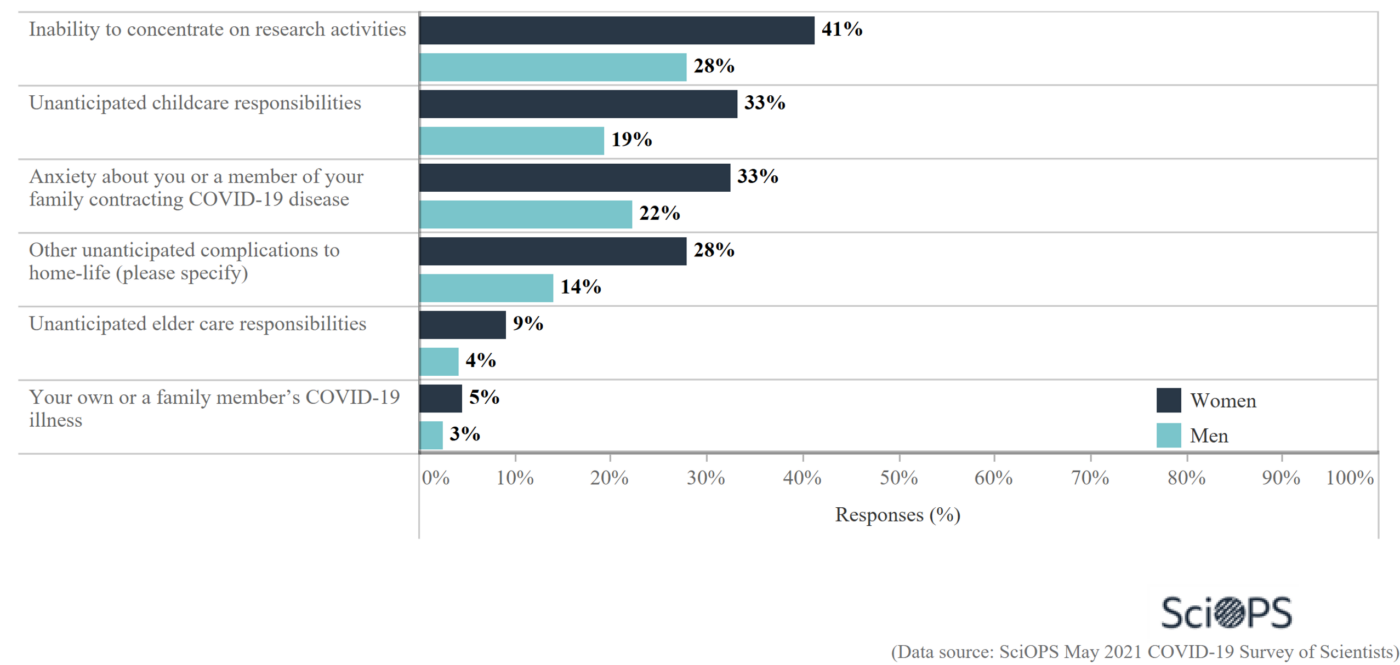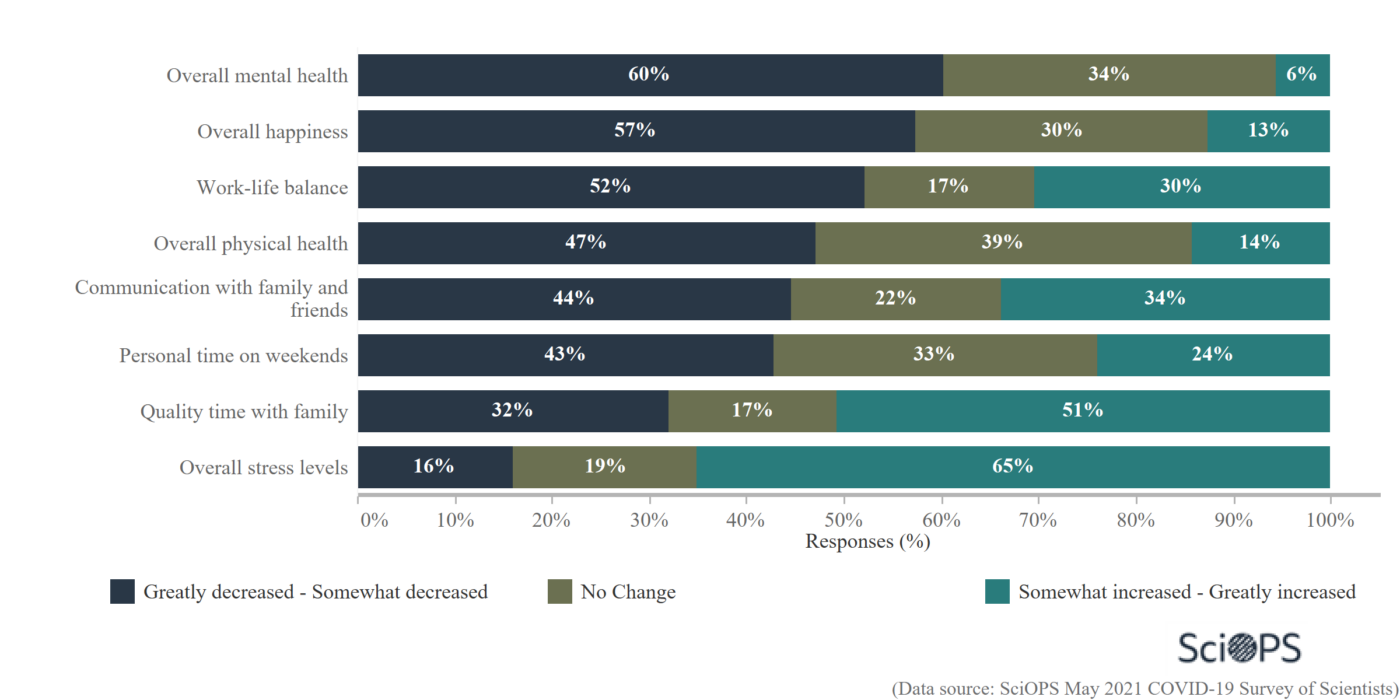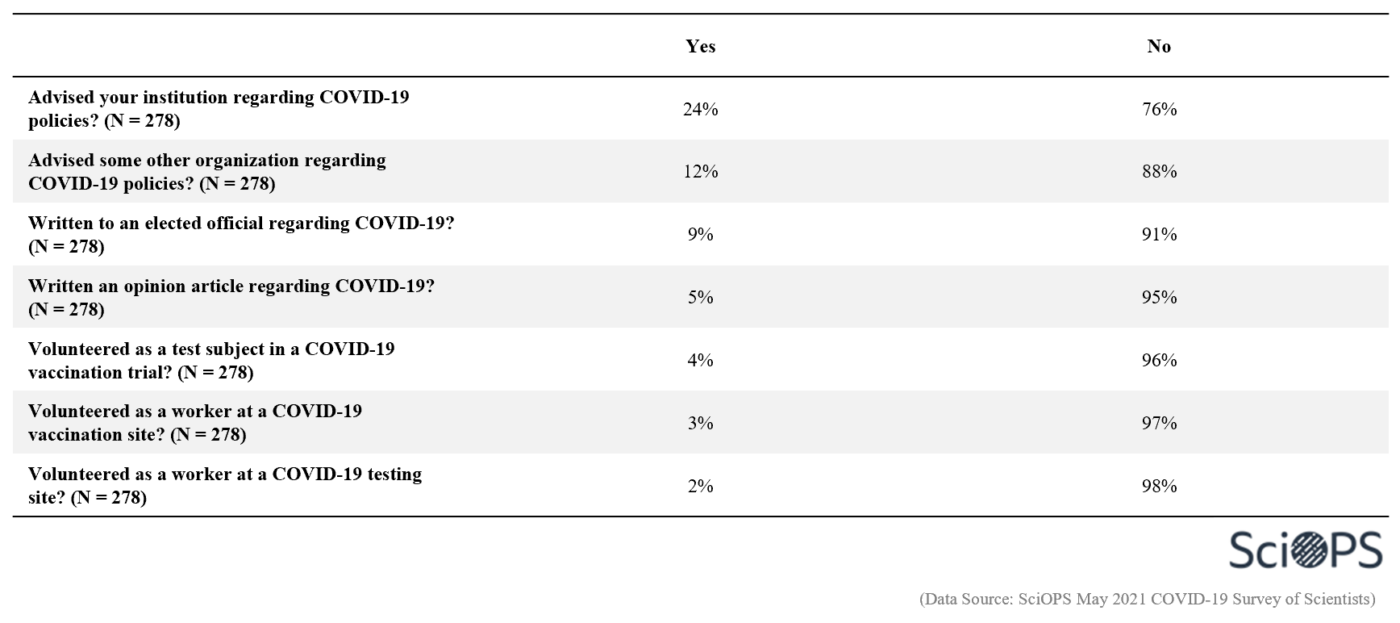COVID-19 Survey II (2021): Personal Impacts
The survey sample was weighted by gender and academic field to represent the population as closely as possible. The measure of sampling error for questions answered by the full sample is plus or minus 5 percentage points.
In this second round survey on COVID-19, we asked scientists about the ways in which their professional and personal lives have been impacted over the past year. We also asked their opinions on policy issues related to the pandemic. You can see results from last year’s survey here.
Question

Finding
The most commonly reported COVID-19 related home-life situations that negatively impacted research are inability to concentrate on research activities (76%) and anxiety about contracting COVID-19 disease (75%). Eleven percent of respondents reported a family member’s COVID-19 illness negatively impacted their research. Other unanticipated complications mentioned by the respondents are: lack of stable internet connections, forced relocations, and potential alcoholism.

Finding
Women and men both report negative impacts on their research, but women are more likely than men to report their research is disputed by home-life. A significantly (p < 0.1) higher proportion of women report difficulties in concentrating on research (41% women; 28% men).
A higher proportion of women scientists reported unanticipated childcare responsibilities (33% women; 19% men) and elder care responsibilities (9% women; 4% men) had a negative impact on their research. Women also reported other unanticipated complications such as management of other family members’ mental health, divorce, limited space at home.
Question

Finding
More than half of the respondents indicate that the pandemic has decreased their overall mental health (60%), happiness (57%) and work-life balance (52%). Two-thirds of respondents reported increased stress levels (65%). Also, a little more than half (51%) report that COVID-19 has resulted in increased quality time spent with family members.
Question

Finding
Since March 2020, less than a quarter of the respondents (24%) have advised their home institutions regarding COVID-19 policies. Less than five percent of the scientists have volunteered as a test subject in a COVID-19 vaccination trial (4%), as a worker at a vaccination site (3%) or as a worker at a testing site (2%).
More than a third of the respondents (39%) have volunteered at least for an activity, and almost fifteen percent of them have volunteered for more than an activity.
Question
Since March 2020, more than two thirds of the respondents were tested at least once for COVID-19 (68%) (N = 279).
Question
Nearly all respondents (98%) report they have received at least a dose of COVID-19 vaccine.
Survey Description
This national survey of scientists and engineers was conducted by Center for Science, Technology and Environmental Policy Studies at Arizona State University. The population for the survey represents a random sample of PhD-level faculty in four fields of science. Three fields biology, biochemistry, and civil and environmental engineering, were collected from 61 randomly selected Carnegie-designated Research Extensive and Intensive (R1) universities in the United States (US). The final sample included contact information for 1,914 scientists. A total of 291 usable responses were obtained, representing an AAPOR response rate (RR4) of 15.7%.
Sample Weighting and Precision: the completed sample was weighted by the inverse of selection probabilities and post-stratified by gender and academic field to represent the population as closely as possible. A conservative measure of sampling error for questions answered by the full sample is plus or minus 5 percentage points. The survey was approved by Institutional Review Boards at Arizona State University and at the University of Illinois at Chicago.
